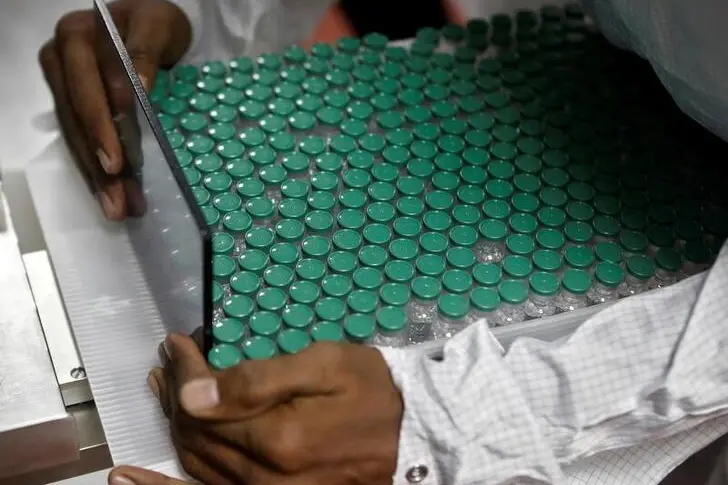PHOTO
NEW DELHI- The Serum Institute of India (SII), the world's biggest vaccine maker, has nearly quadrupled its monthly capacity of AstraZeneca shots to as many as 240 million doses and is prepared to export "large volumes" from January, its CEO told Reuters.
India this month resumed COVID-19 vaccine exports for the first time since April, sending some 4 million doses to friendly countries but none yet to the global vaccine-sharing platform COVAX. SII's monthly production was around 65 million doses when the Indian government stopped all exports as the country's infections soared.
"Because we have converted so many buildings and plants for it, 220-240 million is our output now - which is enough for the country," CEO Adar Poonawalla said after India celebrated the milestone of administering 1 billion doses on Thursday.
"India may need booster shots and other things also, so exports in January won't reach as high as 200 million doses. But certainly, it will be large volumes."
The family-owned company may be able to export up to 30 million doses a month in November and December, he added.
"The government will decide how many doses we export, I think 20-30 million could happen in November - volumes will be small until December," Poonawalla said, adding he did not know yet if any exports to COVAX would happen in October.
SII is contracted to supply hundreds of millions of doses to WHO-backed COVAX but has supplied only a few dozen million shots. The company has provided nearly 90% of the doses administered in India.
Poonawalla also said SII would make only the single-dose Sputnik Light vaccine from Russia and not the two-dose Sputnik V. He said the output will mainly be exported.
SII could also produce 50 million to 100 million doses of the Novavax vaccine by December, Poonawalla said, again mainly for exports.
Novavax has sought regulatory approvals for the vaccine in India, Indonesia and the Philippines, and plans to do so in the United States this year.
"COVID vaccine demand, with boosters, will sustain for a few years, but after two-three years it should hopefully go down," Poonawalla said.
(Reporting by Krishna N. Das, Editing by Timothy Heritage and Elaine Hardcastle) ((Krishna.Das@tr.com; https://twitter.com/krishnadas56 ;))





















